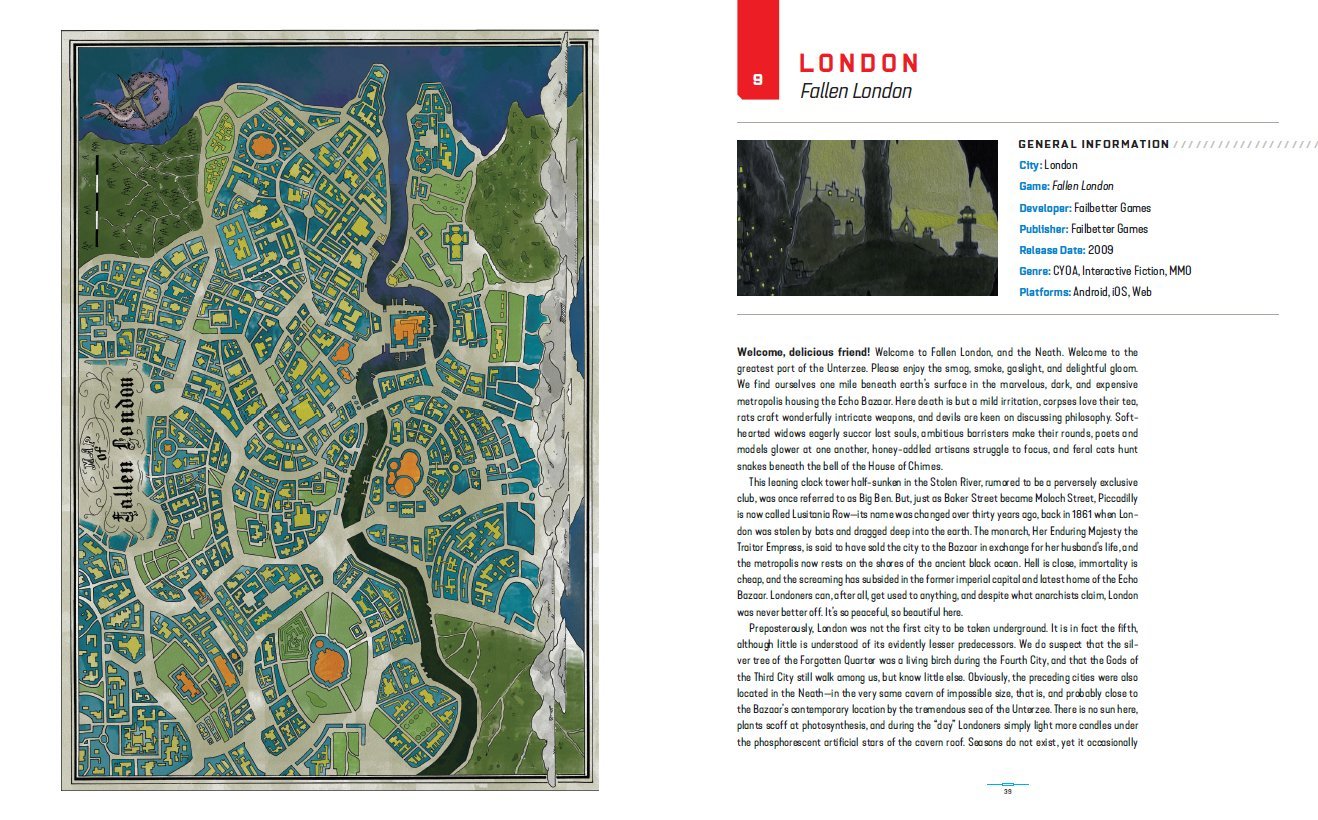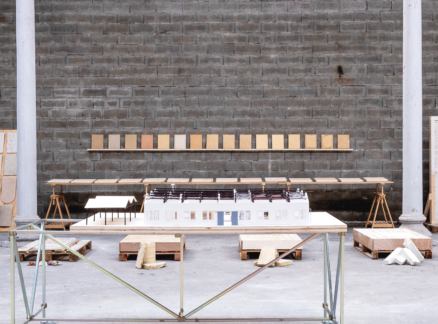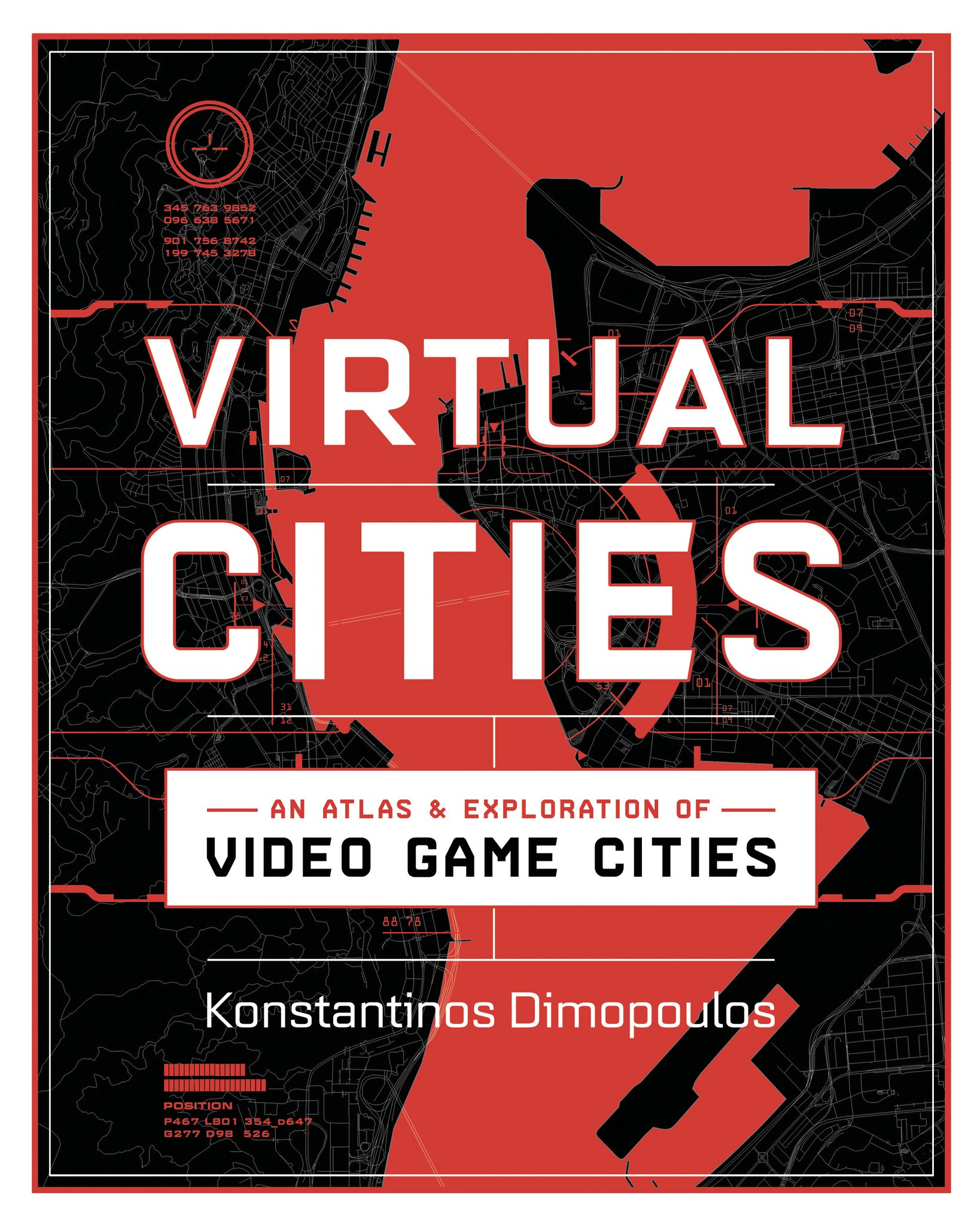
January 6, 2021
Q&A: Konstantinos Dimopoulos on the Virtual Cities of Video Games
The game designer and academic speaks with Metropolis about how fictionalized video game cities can help spark more thoughtful urban planning.
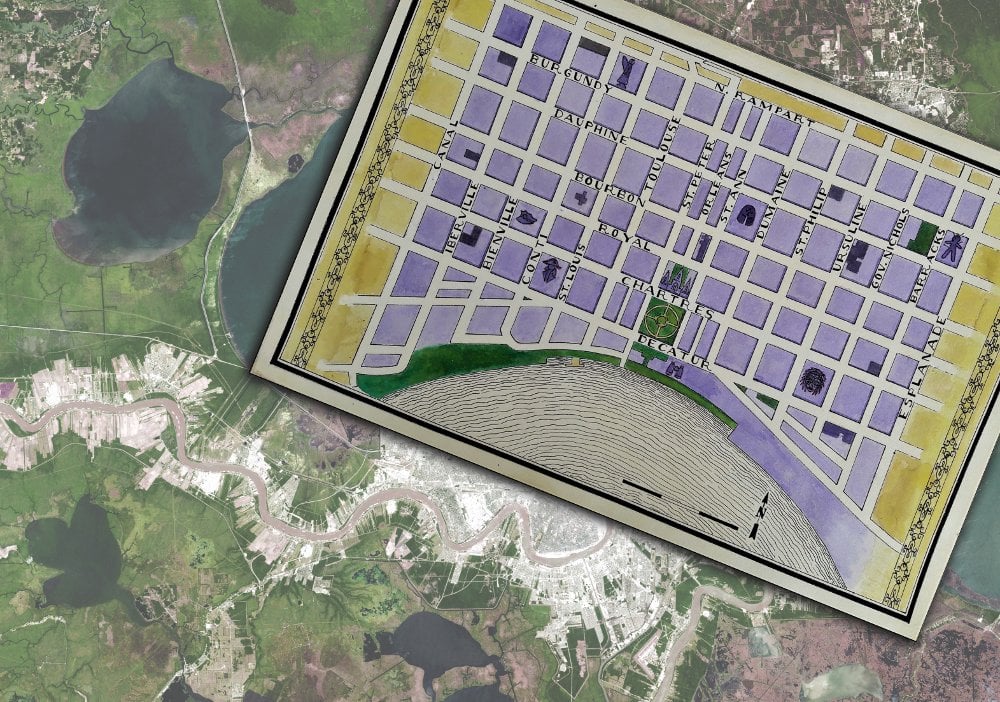
In many video games, a memorable and dynamic setting is as essential to its success as compelling characters or interesting gameplay. That’s the view of Virtual Cities: An Atlas and Exploration of Video Game Cities, a new compilation of imagined city plans and illustrations of 45 cities drawn from gaming’s history, written by Konstantinos Dimopoulos and illustrated by Maria Kallikaki. These digital spaces, Dimopoulos emphasizes, reminds players that cities are a constantly evolving space for narrative play and imagination. By presenting each place ethnographically—imagining each as an inhabitable, comprehensible space— Dimopoulos captures the dynamic relationship between virtual and physical space. Dimopoulos, who holds a PhD in Geography and has designed video game cities for nearly a decade, spoke with Metropolis about the initiative.
What makes digital cities so dynamic in ways that physical cities can’t be?
Think about the constraints of reality that you would have to face in actual planning—red tape and vested interest aside. In the digital cities, you don’t have those, or even the constraints of physical reality itself. If you think about it, you can make impossible buildings and you can create communities that are denser than Kowloon Walled City. Essentially, you’re not doing an engineer’s work; You just need to invoke the illusion of realism, engineering, planning, and so on. What you do, essentially, is art. This is why it’s fun to explore those places: because even when they are abstractions of real, existing places or places that have existed, we have all the freedom to change and reimagine and play with the rules as they see fit.
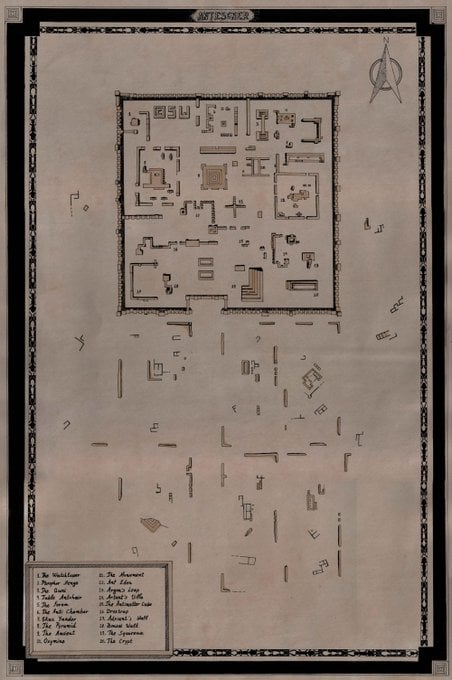
Do you think urban planners could benefit from video games to help improve cities?
We could definitely use our tools and our vocabulary of interactions to help people imagine their actual neighborhoods and actual urban space in a different way. If I gave you a SimCity-like interface to play with your immediate surroundings, you might be able to express your needs and wants in a more articulate fashion. I don’t mean that anyone who’s given access to such a broad program would be able to supplant a body of planning knowledge. But on the other hand, the planner cannot always imagine and understand everything that residents need and demand. So, it’s more of a tool-like approach, trying to understand how we can use game tools to facilitate community planning.
How can cities be misrepresented in games?
One thing I absolutely hate is poor naming. In cyberpunk settings, everything has to be Neo New York, New Tokyo, New London. This is not how things should work! I also hate it when people call their cities “The City.” It’s just not imaginative.
But more importantly, some games just completely ignore the city’s core function—there will be cities without residents, which destroys the immersion experience. Others get the scale completely wrong: For example, you’re in a metropolitan place, but you’re told that you have to go to the bookseller, as if anyone could expect a big city to have just one single bookstore.
One major issue is that games can become incredibly nasty and cynical. Too many games portray a misery of life in urban spaces, without daring to imagine any hope. This may reflect a more political concern about how we look at the state of affairs, but we’ve had far too much of it lately.
You may also enjoy “A Waterfront Eatery in Denmark Is Designed for Disassembly”
Would you like to comment on this article? Send your thoughts to: [email protected]
Register here for Metropolis’s Think Tank Thursdays and hear what leading firms across North America are thinking and working on today.
Recent Viewpoints
Viewpoints
Sustainability News Updates for Q2 2025







